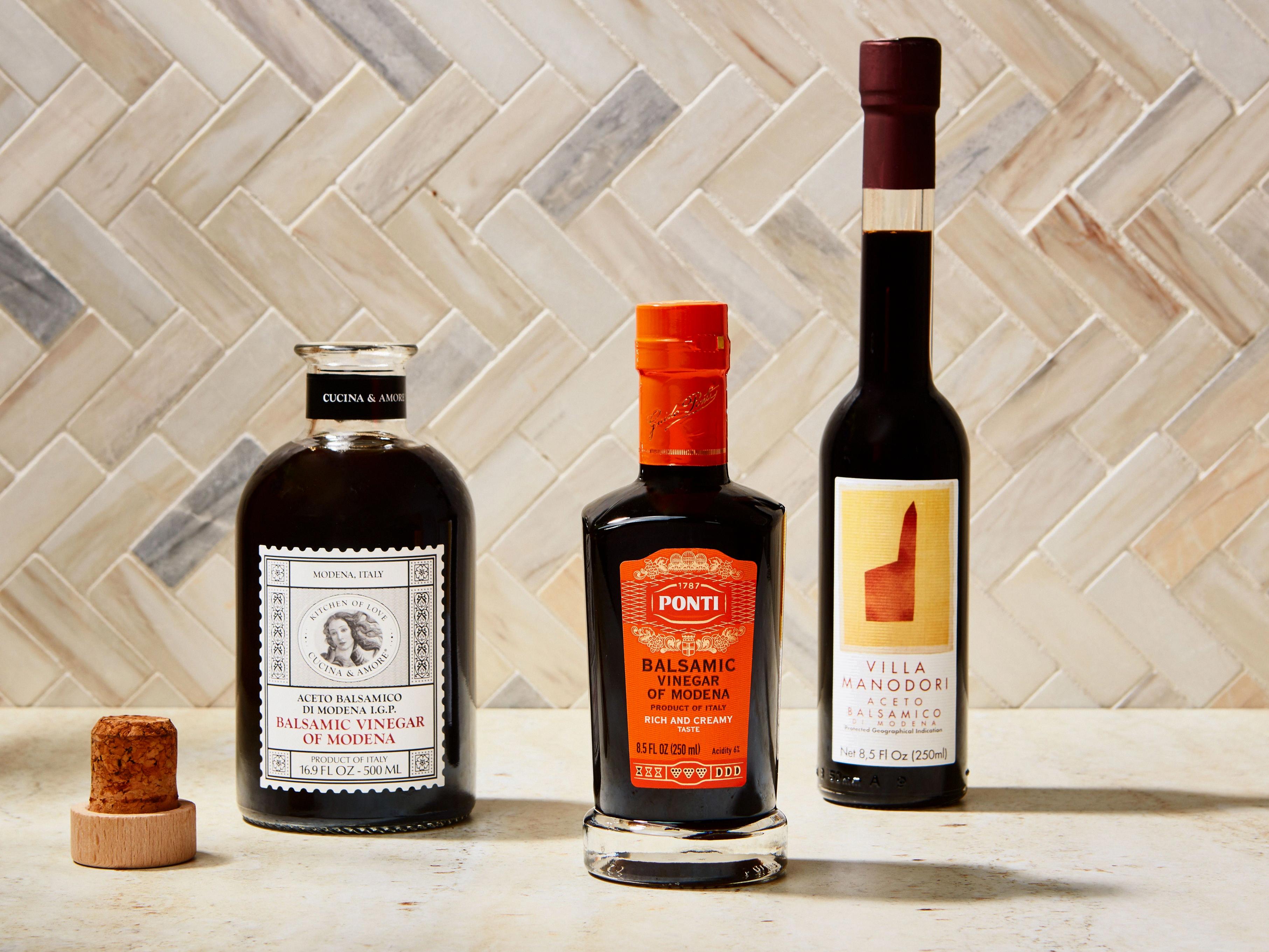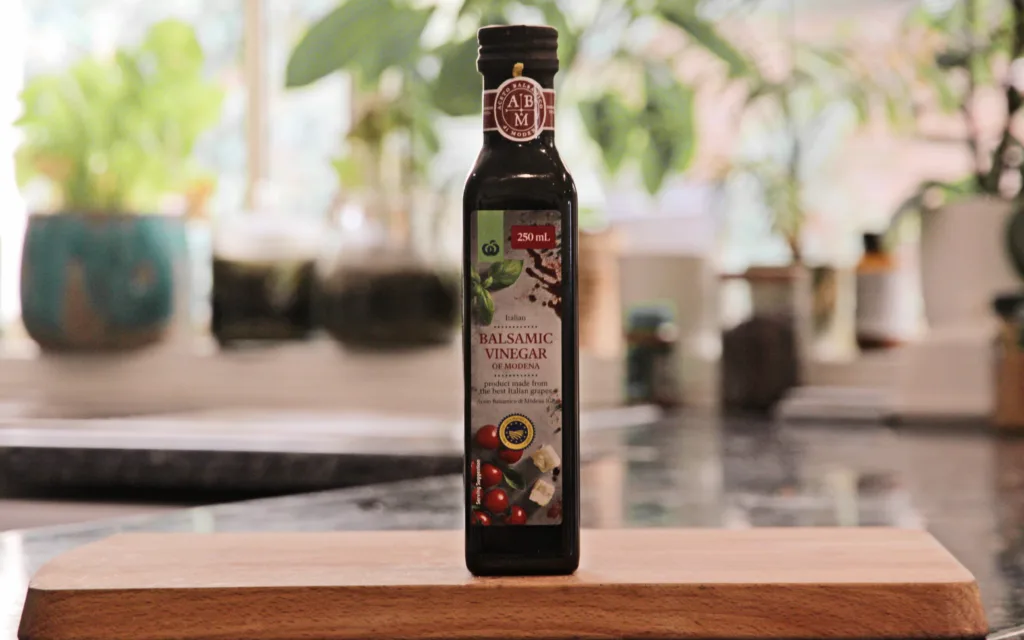Balsamic vinegar is a popular condiment used in a variety of dishes, from salads to marinades to desserts. It’s known for its rich, complex flavor and deep brown color. But when it comes to storing balsamic vinegar, there’s a lot of confusion. Does it need to be refrigerated? How long does it last? In this blog post, we’ll answer these questions and more.
First of all, let’s address the question of whether balsamic vinegar needs to be refrigerated. The short answer is no, it doesn’t. Balsamic vinegar is acidic enough to be shelf-stable, which means it can be stored at room temperature without spoiling. Refrigeration is not necessary, although you can certainly store it in the fridge if you prefer.
Now, let’s talk abot how long balsamic vinegar lasts. Like most vinegar, balsamic vinegar has a very long shelf life. Properly stored, it can last for several years past its sell-by date. However, the quality of the vinegar may start to decline after a few years, so it’s best to use it within three to five years of purchase.
When it comes to storing balsamic vinegar, there are a few things to keep in mind. First, make sure the bottle is tightly sealed to prevent air from getting in. Exposure to air can cause the vinegar to oxidize and lose flavor. Second, store the vinegar in a cool, dark place away from direct sunlight. Sunlight can also cause the vinegar to deteriorate.
If you do decide to store your balsamic vinegar in the fridge, be aware that it may thicken and become syrupy over time. This is perfectly normal and doesn’t indicate that the vinegar has gone bad. Simply let the vinegar come to room temperature before using it, and it should return to its normal consistency.
In terms of quality, not all balsamic vinegars are created equal. There are varying grades of balsamic vinegar, ranging from inexpensive supermarket brands to high-end, artisanal vinegars aged for decades. Generally speaking, the more expensive the vinegar, the better quality it is and the longer it will retain its flavor and aroma.
Balsamic vinegar does not need to be refrigerated and can be stored at room temperature for several years. Proper storage is key to maintaining the vinegar’s quality and flavor, so be sure to keep it tightly sealed in a cool, dark place. And if you’re looking for the best quality balsamic vinegar, be prepared to pay a little extra for an artisanal brand that has been aged for years or even decades.
The Effects of Not Refrigerating Balsamic Vinegar
Balsamic vinegar is an acidic liquid that is commonly used as a condiment, salad dressing, marinade, or for cooking. Fortunately, balsamic vinegar does not require refrigeration, and it will not spoil or go bad if it is not refrigerated. The acidity of the vinegar acts as a natural preservative, which prevents the growth of harmful bacteria or molds.
However, not all balsamic vinegars are created equal. The quality of the vinegar can impact how long it will retain its flavor and aroma. Cheaper balsamic vinegars are often made with wine vinegar and caramel color, which can have a shorter shelf life than higher-quality vinegars made from grape must.
Even though balsamic vinegar does not require refrigeration, storing it in a cool, dark place can help preserve its flavor and aroma. Exposure to heat, light, and air can cause the vinegar to oxidize, which can alter its taste and quality over time. If you notice any changs in the color, smell, or taste of your balsamic vinegar, it may be time to replace it.

Source: epicurious.com
The Shelf Life of Balsamic Vinegar Unrefrigerated
Balsamic vinegar can last unrefrigerated for a considerable amount of time due to its high acidity content, which acts as a natural preservative. If the vinegar is stored properly in a cool, dry place away from direct sunlight, it can maintain its quality for up to 3-5 years past its sell-by date. However, it’s important to note that over time, the vinegar’s flavor and color may begin to change due to natural oxidation processes. Despite these changes, the vinegar will remain safe to use as long as it doesn’t show any signs of spoilage, such as mold or a rancid smell. It’s always a good idea to check the vinegar’s appearance and aroma before using it, especially if it has been stored for an extended period of time.
Storing an Open Bottle of Balsamic Vinegar
Balsamic vinegar can be stored in a cool, dark place at room temperature, such as a pantry or cabinet. It is shelf-stable and does not require refrigeration even after opening, due to its high acidity levels which prevent bacterial growth. It is important to ensure that the bottle is tightly sealed to prevent air exposure and potential contamination. If you prefer, you can also store the bottle in the refrigerator, but it is not necessary. Avoid storing balsamic vinegar near heat sources or direct sunlight, which can cause it to spoil or lose its flavor over time. Following thee guidelines will help you maintain the quality of your balsamic vinegar for an extended period.
How Long Does Balsamic Vinegar Last Before Going Bad?
Balsamic vinegar is a condiment that is known for its rich, sweet flavor and versatility in culinary applications. Unlike many other food products, balsamic vinegar does not go bad in the traditional sense. The acidity and tannins in the vinegar act as natural preservatives that prevent the growth of harmful bacteria or mold. However, the taste and quality of the vinegar can slowly degrade over time, especially if it is not stored properly.
If you store your balsamic vinegar in a cool, dry place away from direct sunlight, it can maintain its flavor and quality for several years. The flavor of balsamic vinegar is at its peak within the first three years of production, so it is best to consume it during this time. However, even afer three years, balsamic vinegar can still be used and enjoyed for many years to come.
One thing to keep in mind when storing balsamic vinegar is to make sure that the cap or cork is securely tightened. This will prevent air from entering the bottle and oxidizing the vinegar, which can cause it to lose flavor and quality more quickly.
In summary, balsamic vinegar does not go bad in the traditional sense, but its flavor and quality can slowly degrade over time. If stored properly and with a securely tightened cap or cork, balsamic vinegar can maintain its flavor and quality for several years, with the peak flavor being within the first three years of production.

Conclusion
In conclusion, balsamic vinegar is a versatile and flavorful condiment that has been used for centuries. It is a type of vinegar that is made from grapes and aged in barrels for sevral years, resulting in a rich and complex flavor. While not all balsamic vinegars are created equal, the good news is that it doesn’t really go bad, as it is acidic enough to remain safe to use even if you don’t refrigerate it. Better quality and more expensive balsamic vinegars can retain their quality for longer periods of time. Stored at room temperature, balsamic vinegar can last 3-5 years past its sell-by date, with the flavor and color potentially changing over time but without becoming unsafe to consume. Oxygen exposure generally does not cause deterioration due to the high amounts of acid, and the condiment can be stored in a cool, dark place such as a pantry or cabinet. Overall, balsamic vinegar is a delicious and long-lasting addition to any pantry.
